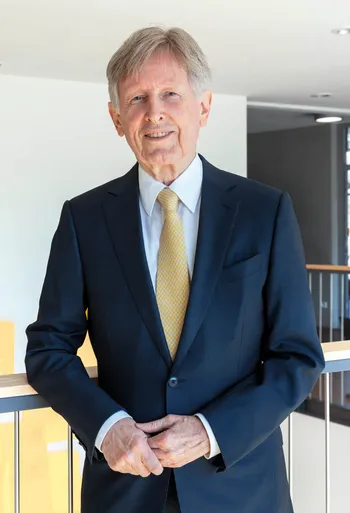TUM-IAS Director’s Message
Crises such as the pandemic or the war in Ukraine act like a burning glass and force us to rethink. In the spring of 2022, many failures are visible, and the consequences weigh heavily on us. In Europe, too, 30 years after the war in Yugoslavia, we are once again a long way from stable peace and from realizing the goals that global societies set themselves with a view toward sustainability.

Image: Sebastian Kissel
All the more, however, the challenge to the sciences in their entire breadth and to research remains to keep the flame of creativity burning. Under COVID-19, we have learned new, efficient ways of working together, and in future meta-worlds, virtual and physical meeting spaces will intermingle even more strongly worldwide to generate progress through the exchange of ideas.
The transformation to greater sustainability is one of the greatest challenges facing science, business, and society, also in terms of peacekeeping. This basically comes as no surprise. Exactly 60 years ago, in 1962, Rachel Carson published her most important work, Silent Spring, which urgently described the drastic consequences of the use of pesticides and herbicides for fauna, flora, and humans. In 1972 , the Club of Rome presented its first major study, The Limits to Growth. It has lost none of its relevance 50 years later. It is more urgent than ever, not only for us researchers, but for all of us: to think and act sustainably – together, across borders, worldwide. TUM and the TUM-IAS take this up and are guided by this principle in their scientific work and teaching. For us, sustainability is one of our strategic pillars today. This is reflected in the projects of our Fellows with their TUM Hosts and PhD candidates (Focus Groups) and also in the activities of our partner, the International Expert Network on Earth System Preservation (IESP).
The research of the international TUM-IAS Fellows in Focus Groups, located at the various departments and Schools of TUM, is highly specialized and oriented toward fundamentals, often only comprehensible in detail to experts in the field. However, a closer look at the results often reveals concrete application references, e.g., energy-saving chemical processes, new and more efficient semiconductor materials, digital twins for simulations in the various engineering sciences, computational models for securing water supplies, or more precise and earlier diagnostic possibilities in medicine, as well as in earth observation.
Therefore: Even if the pandemic leads to severe restrictions and the war causes deep cuts and the need for far-reaching changes, the creativity and willingness to take risks shown by excellent, committed scientists of all ages in the working environment of our TUM inspire hope. Essential for the development and promotion of creative achievements are encounter and exchange, combination and recombination of knowledge and experience, and finally the often quoted “one percent inspiration, ninety-nine percent perspiration” (Thomas A. Edison).
The TUM Institute for Advanced Study offers its Fellows, Members, and friends exactly that: an “exchange place of knowledge,” as TUM President Thomas Hofmann calls it. That is why our Fellowship Program is so important, and I am very pleased to have seen and met many Fellows at the TUM-IAS in recent months, despite travel restrictions.
To mitigate the impact of the pandemic on our projects, we have extended the terms of Fellowships that have already begun, as well as doctoral funding. New programs that we announced last year, such as the Innovation Networks and the Albrecht Struppler Clinician Scientist Fellowships, have started successfully. This year, we are awarding the first Fellowships of the Georg Nemetschek Institute Artificial Intelligence for the Built World, based at TUM. More about this on the following pages.
We transformed our weekly “Wednesday Coffee Talks,” where Fellows and TUM scientists reported on their work, into an online format, reaching more people, including more students, than before – not only at our five TUM locations, but worldwide! This event unites our Fellow community, which is recruited from all continents.
From the many positive developments that you can read about on the following pages, I would like to single one out here as particularly gratifying: Some of our Fellows are among the world’s most cited scientists in their fields. It fills me with pride that we were able to win them as TUM-IAS Fellows. If you look at the publications of all Fellows since the founding of the TUM- IAS, they are cited more often than average. They also report their research results in the top five percent of the relevant journals with above-average frequency. This means that the Fellows of the TUM-IAS with their Focus Groups at the Schools and departments of TUM are globally judged to be particularly relevant in terms of generating scientific and technical progress.
This outstanding scientific output is made possible by the generous support that the TUM-IAS receives from various sources. Here I would like to thank in particular Siemens AG and the TÜV Süd Foundation, which have provided us with considerable support in recent years. In 2021, we were able to award three Anna Boyksen Fellowships, the funding for which comes from the Excellence Strategy of the German federal and state governments – they also deserve thanks. Finally, my thanks go to the Free State of Bavaria, which finances our university, and thus also the TUM-IAS, from tax revenues.